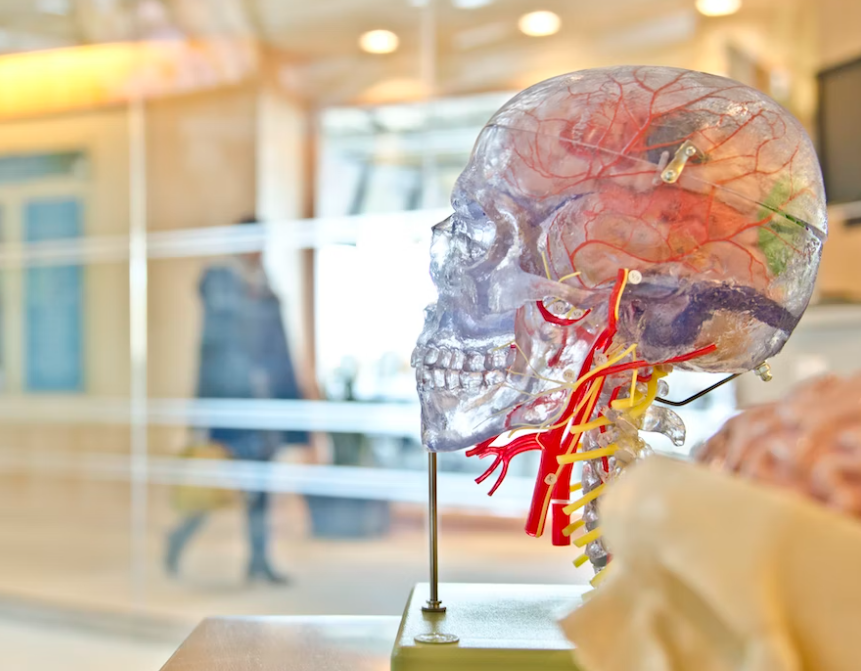What Meditation Does to the Brain
Meditation releases neurotransmitters, which control vital hormones and influence systems throughout the body.

Selfpause Affirmation App
Download the app to get 1,000’s of affirmation meditations and everything you need to write, record and listen to your own.
The brain is constantly buzzing with electrical activity. It releases neurotransmitters that control vital hormones and influence systems throughout the body. This electrical activity is referred to as brainwaves. A person can use an electroencephalogram machine to measure the frequency of brainwaves, which convey information. Meditation has been found to alter brainwaves.
Increases activity in executive regions of the brain

A recent study found that meditation increases activity in the executive regions of the brain. The results show that meditators’ GM increased in the fronto-insular cortex. These regions have been implicated in self-referential processing, as well as in the regulation of emotional states. The authors also observed that meditation improves the connectivity between these two regions.
Meditation also strengthens the left prefrontal cortex, the part of the brain responsible for our feeling good. Research shows that the brain’s left prefrontal cortex grows thicker and more active during regular meditation. This part of the brain represents attention, complex cognitive skills, and sensory processing. When we meditate, we enhance the activity in these regions and boost our cognitive abilities.
In a recent study, researchers compared the brains of 35 unemployed adults who were suffering from high levels of stress. These participants underwent a relaxation training program and meditation training. Then, after three days, the researchers analyzed the participants’ brain scans. The researchers noted that the participants’ meditative activity was significantly different from the controls. Their brain scans also revealed improvements in a blood marker of inflammation, which is related to stress.
The results also showed morphological differences between meditators and non-meditators. The medial prefrontal cortex, hippocampal cortex, and fronto-insular cortex were the most consistently altered brain regions. These regions are implicated in self-awareness, self-regulation, and episodic memory. However, these studies are limited by cross-sectional design, which limits the causal relationships.
Researchers also found that meditation decreased cortical thickness in extensive parietal regions. This may be linked to enhanced cognitive functions. Additionally, meditation decreased GM levels, which may be related to improved self-perception. Moreover, meditation increases plasticity in the mPFC, a brain region responsible for the development of cognitive skills.
Increases activity in amygdala

Meditation and yoga are known for their stress-reducing properties. However, not all individuals who practice them did so due to stress. However, the association between a smaller right amygdala and depression, anxiety, and stress remain. Several studies support this connection. They suggest that meditation and yoga practice improve stress, anxiety, and depression.
Research shows that meditation reduces the activity in the amygdala in long-term practitioners. The activity of the amygdala is reduced during meditation, and it persists over time. This decrease in activity is thought to be a result of meditation practice, as meditation changes the way the brain responds to stressful situations. Studies have also shown that people with regular meditation practices experience less anxiety and a more stable positive mood.
In addition to the increased activity in the left amygdala, meditation also enhanced functional interactions with the right and left hippocampus. These associations were not significant after correction for multiple comparisons. Therefore, it is important to know the background of a person’s emotional state.
While meditation increases the activity of the amygdala, it also decreases the volume of the right amygdala. This is associated with less anxiety, less stress, and improved memory. Studies have shown that meditation reduces the volume of the right amiga by 24% compared to those with no meditation practices.
Researchers conducted a study on participants who experienced the effects of meditation and yoga. They found that those who experienced reduced levels of ELS had lower levels of depression, and their amygdala was smaller than the study participants. However, this may reflect a more adaptive stress response.
Reduces stress

One of the best ways to reduce stress is through meditation. Mindfulness meditation is known to boost your focus and well-being. It also reduces your stress response and helps you switch your attitude towards stress. It can help you see the positive impact of stress instead of just focusing on the negative. Some people find it helpful to practice meditation while at work. The key is to find a quiet room and sit comfortably.
Practicing meditation can be as simple as breathing deeply and slowly. Focus on your breath and block out other distractions. Try meditating for five minutes at a time. If you don’t have enough time, try taking small meditation breaks throughout the day. A meditative walk around the block can help you relax, as can listening to a guided meditation.
One study found that meditation had significant benefits for young people’s developing brains. The researchers studied 47 healthy young adults and divided them into two groups: those who practiced mindfulness meditation twice a day, and those in the control group who were given an audiobook. The audiobooks were listened to for eight weeks. The results showed that meditators reported less stress and higher GPAs. The findings are promising, but further research is needed to prove its efficacy in the long run.
While there are numerous types of meditation, the most important thing is to practice consistently. Just five to 20 minutes of meditation twice a day can help reduce stress and improve overall health.
Increases empathy

Meditation can increase empathy in a variety of ways. Studies have shown that it increases the ability to recognize others’ emotional states and that it can even change brain structure. There are few studies examining the impact of behavioral interventions on empathy, but meditation may be able to affect it. A study by Emory University showed that the practice of meditation can improve both emotional and behavioral traits.
This study looked at children between three and 14 years old. It showed that meditation could increase empathy in children. It also demonstrated that meditation can “exercise” the brain. Monks engage in meditation to achieve a state of “oneness.” During this process, the brain programs itself to find harmony with the world.
Empathy is an important skill for optimal social functioning. Some social cognitive disorders impair this ability. However, pharmacological interventions have shown promise for increasing this ability. In this study, 21 healthy subjects completed the RMET, a test that measures how accurately people can identify other people’s emotional states. Meditation significantly increased participants’ empathy scores.
Meditation increases empathy in a variety of ways. For example, it enhances the ability to recognize others’ feelings, which is an essential characteristic of empathy. Studies also indicate that it can improve the ability to read emotions. One such test is the Reading Mind in the Eyes Test, a test in which people are shown to make a facial expression and are asked to judge what the person is thinking. In the meditation group, eight out of 13 participants increased their RMET scores by an average of 4.6 percent. By contrast, the control group did not improve their scores and had a drop in the number of correct answers.
Our Top FAQ's
Meditation has been shown to affect the brain in a number of ways, such as reducing activity in the default mode network (DMN), increasing grey matter density in certain regions, and altering the way different brain regions communicate with each other. These changes are thought to be associated with improved attention, emotional regulation, and other benefits of meditation.
Some of the specific changes that have been observed in the brain as a result of meditation include:
- Decreased activity in the default mode network (DMN), a network of brain regions that are active when the mind is wandering or not focused on a specific task.
- Increased grey matter density in certain brain regions, such as the hippocampus (involved in memory and learning) and the amygdala (involved in emotion).
- Altered communication between different brain regions, such as increased connectivity between the prefrontal cortex (involved in decision making and attention) and the rest of the brain.
Research has shown that meditation can produce brain changes similar to those seen in other activities that involve focused attention and mental training, such as learning a new skill or practicing a musical instrument. However, the specific effects of meditation on the brain may be somewhat different, depending on the type of meditation being practiced and the individual’s experience with meditation.
Yes, the effects of meditation on the brain can be measured using various techniques, such as functional magnetic resonance imaging (fMRI) to assess changes in brain activity, and structural MRI to assess changes in brain structure. These techniques can provide insight into the specific brain changes that occur as a result of meditation, and how those changes may be related to improvements in cognitive and emotional functioning.
Some of the potential benefits of meditation on brain function and overall health include:
- Improved attention and focus
- Enhanced emotional regulation and reduced stress
- Improved memory and cognitive function
- Increased creativity and problem-solving abilities
- Improved physical health, including reduced blood pressure and improved immune function.
